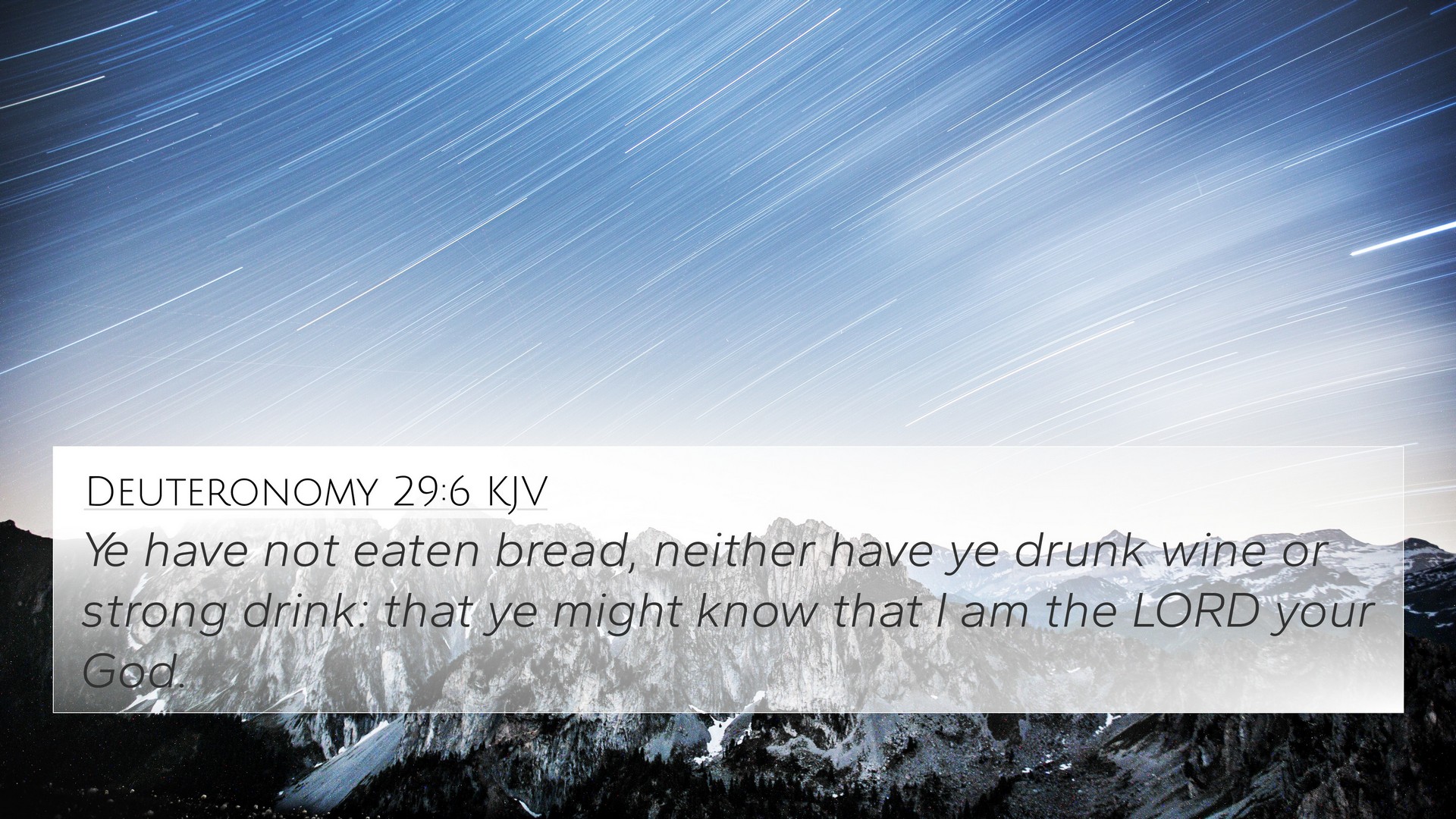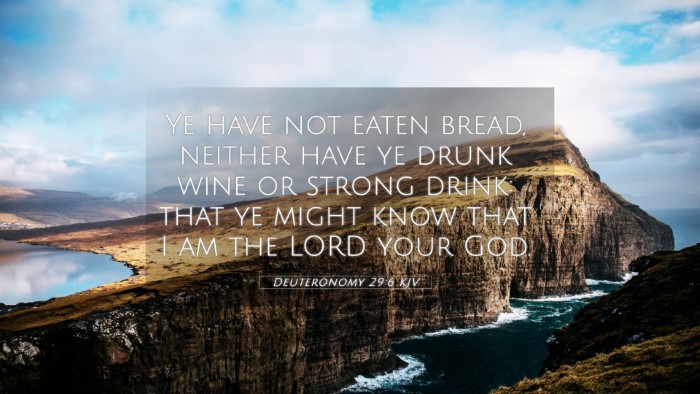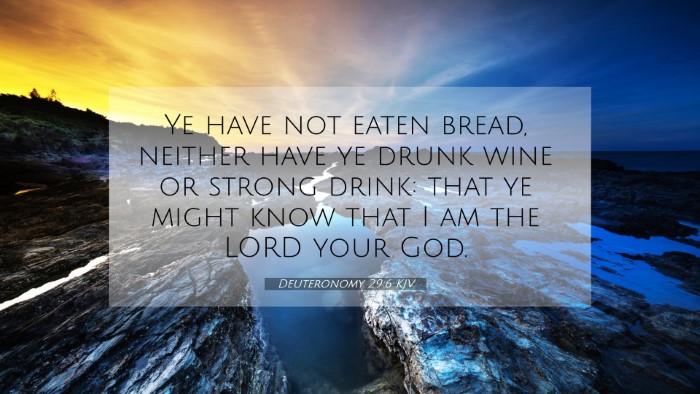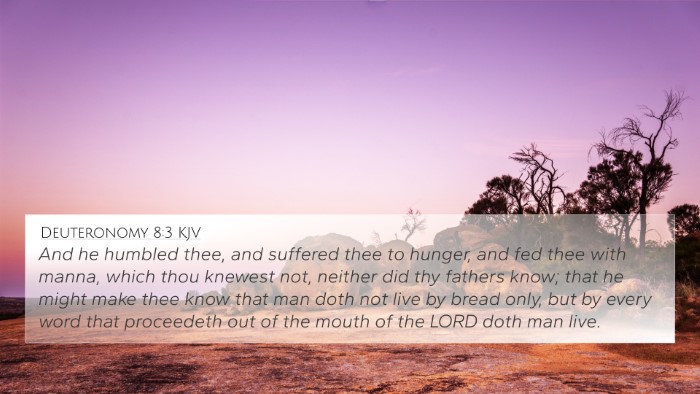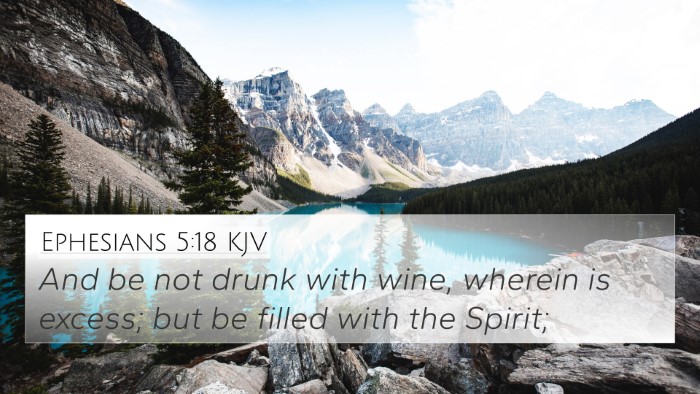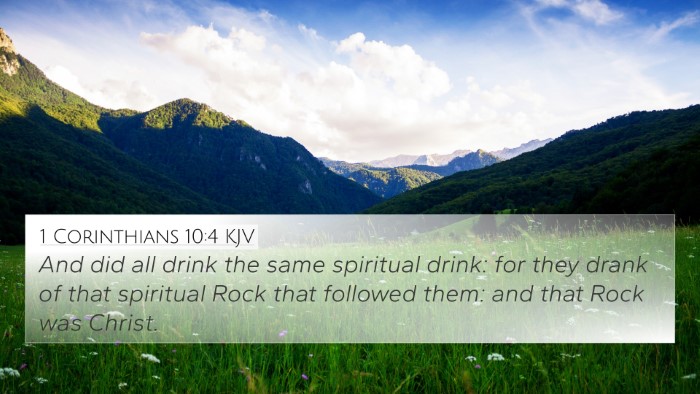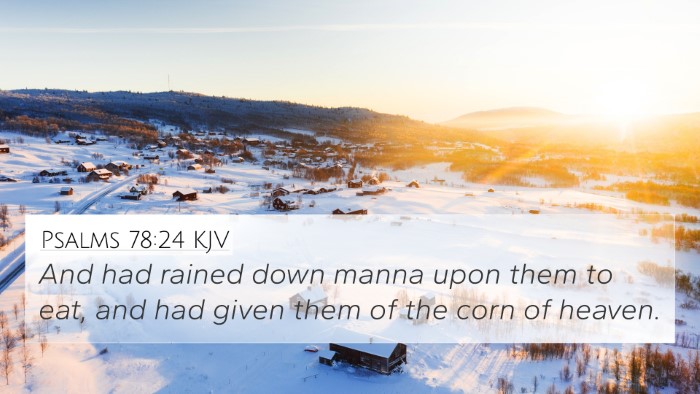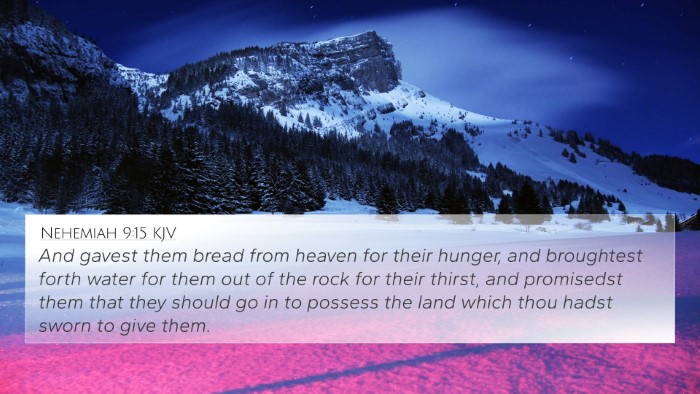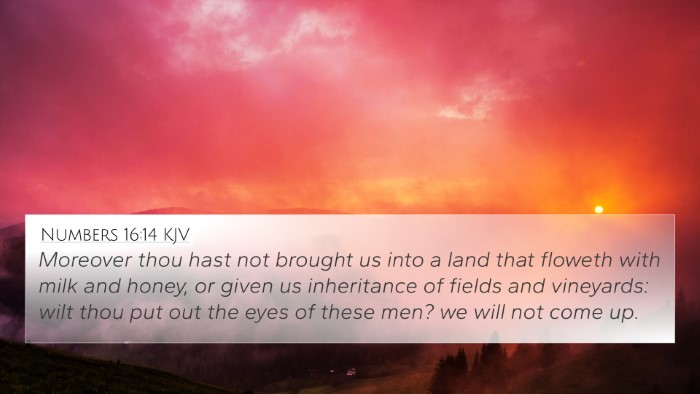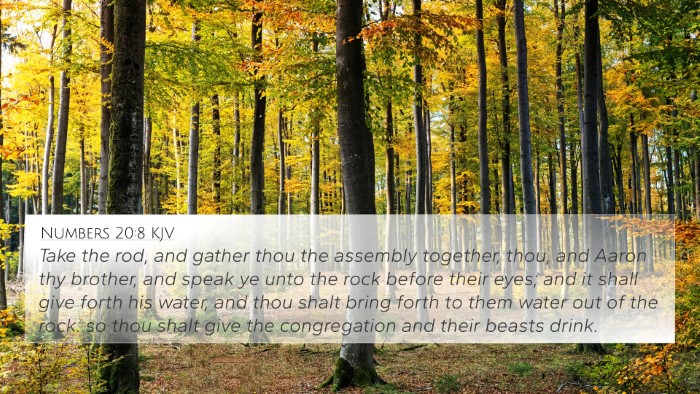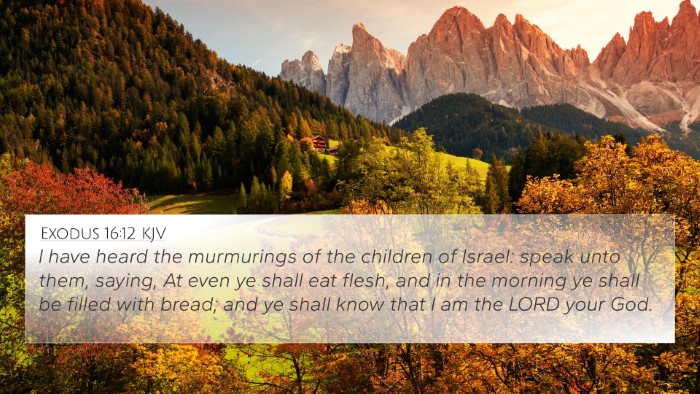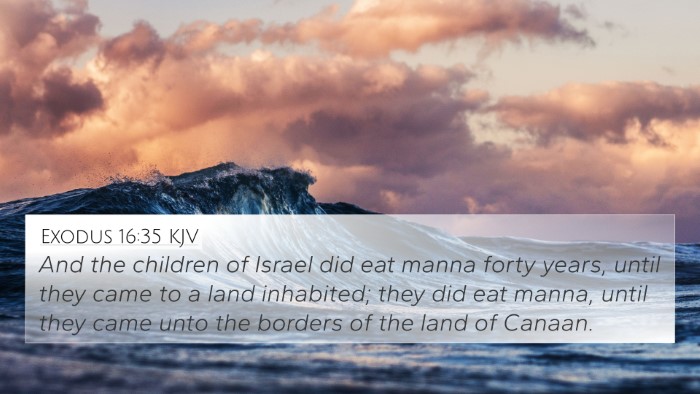Understanding Deuteronomy 29:6
In Deuteronomy 29:6, we encounter a declaration of God's provision and faithfulness to His people, the Israelites. The verse states:
"You have not eaten bread, nor have you drunk wine or strong drink, that you may know that I am the Lord your God."
Exegesis of the Verse
This verse reflects on the significance of Israel's experience during their forty years in the wilderness, where God's supernatural care was evident.
- Matthew Henry's Commentary: Henry emphasizes the miraculous sustenance of God, illustrating that the Israelites were kept from relying on conventional food or drink. Rather, it was a period wherein they were conditioned to depend solely on God for their needs.
- Albert Barnes' Notes: Barnes points out that the absence of bread and wine was purposeful, highlighting God's desire for the people to recognize His sovereignty and providence. It was a lesson in faith, showcasing how God ensured their survival without the usual means of sustenance.
- Adam Clarke's Commentary: Clarke elaborates on the spiritual implications of this abstinence. He explains that this avoidance was not simply physical but intended as a means of divine teaching about reliance on God and the importance of spiritual sustenance over material fulfillment.
Thematic Connections
This verse serves as a vital connection to various themes throughout the Bible. Here are some thematic Bible verse connections:
- Faith and Dependence on God: The theme of reliance on God's provision can be paralleled with Matthew 4:4, where Jesus quotes, "Man shall not live by bread alone, but by every word that proceeds from the mouth of God."
- God’s Sovereignty: In Psalm 78:24-25, God's provision of manna is recounted, indicating His care and faithfulness toward His people.
- Divine Instruction: 1 Corinthians 10:3 reflects on the same theme, presenting the spiritual significance of the Israelites' experiences in the wilderness.
- Complete Dependence: John 15:5 highlights the necessity of abiding in Christ, which aligns with the idea of reliance expressed in Deuteronomy 29:6.
- God's Faithfulness: This theme resonates in Lamentations 3:22-23, emphasizing God's steadfast love and mercy, reiterating that He provides for those who trust in Him.
Cross-Referencing Biblical Texts
Cross-referencing these scriptures allows for a deeper understanding of Deuteronomy 29:6. The connections illustrate God's intent for His people to trust Him:
- Exodus 16:35 - The Israelites ate manna for forty years, emphasizing God's miraculous provision.
- Deuteronomy 8:3 - This reiterates the teaching that man should not live by bread alone but by God's words.
- Isaiah 40:31 - "But those who wait for the Lord shall renew their strength," which encapsulates the reliance theme.
- Philippians 4:19 - "And my God will supply every need of yours," showcasing continuity in God's provision across Testaments.
- Romans 8:32 - "He who did not spare his own Son but gave him up for us all, how will he not also with him graciously give us all things?" This reflects the ultimate provision through Christ.
Application of the Verse Today
In modern Christian application, Deuteronomy 29:6 urges believers to:
- Trust in God's Provision: Believers today are invited to practice faith in God’s sustenance in their lives, remembering His faithfulness.
- Seek Spiritual Nourishment: The verse highlights the importance of prioritizing spiritual over physical nourishment through prayer and the Word.
- Recognize God in Daily Life: Daily experiences, challenges, and provisions are opportunities to see God's work and sovereignty.
- Embrace Community of Faith: Just as the Israelites shared in their collective experiences, today's believers are encouraged to share and support each other's journeys of faith.
Cross-Reference Tools and Resources
Utilizing tools for Bible cross-referencing enhances scripture study. Here are some effective methods:
- Bible Concordance: A comprehensive tool that lists words and their occurrences for easier references.
- Cross-Reference Study Bibles: Many Bibles come with built-in cross-references that link related passages.
- Bible Reference Resources: Use of online or print materials to identify thematic links and parallels in scripture.
- Bible Chain References: Following connections within thematic chains assists in holistic understanding.
- Study Groups and Classes: Engaging in community discussions can reveal unique insights into scripture connections.
Conclusion
Deuteronomy 29:6 is not merely a historical statement but a timeless lesson on reliance, faith, and the spirit of divine instruction. By employing tools for Bible cross-referencing and examining the connections between Bible verses, believers can enrich their understanding and deepen their faith. This verse calls each one to acknowledge the Lord's sustaining power and provision in every aspect of life.
